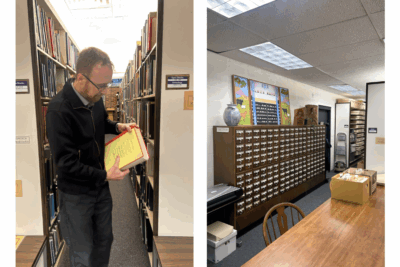A simple yet profound request made its way into my Gmail inbox last week. It was an invitation to sign a graduation pledge, which read:
“I pledge to take into account the social and environmental consequences of any job I consider and will try to improve those aspects of any organization for which I work.”Last year, 90 Goshen College seniors signed this pledge and wore a small green ribbon at graduation ceremonies to signify their support. Tamara Shantz, assistant campus minister and this year’s organizer, hopes to get over 100 participants.
Thanks to four years at an institution like Goshen College – a college that attracts top environmental leaders such as E.O. Wilson and Bill McKibben and that boasts (quietly, like a good Mennonite) the only LEED platinum-certified building in the state of Indiana – signing this pledge was a no-brainer.
Although I would have called myself an environmentalist before college, it was not until studying here that I truly became active in making changes in my own life and understanding sustainability as a primary value. Now, as I head into the work world, I find this pledge to be an important reminder that education does not stop when I leave the halls of academia.
I do, however, have one regret about signing this pledge. I wish I had done it earlier.
I wish that – as a first-year student – I had vowed to take into account the social and environmental consequences of the choices of the organization which I was about to join.
Would a campus full of green-ribbon-wearing students have allowed the sustainable farm gift rejection – an action that seemed, to many of us, to place a higher value on monetary gain than forward-thinking environmental action – to simply fade away? Or, would we relentlessly question the leaders of an organization preparing to re-brand itself as an institution that values environmental responsibility and hold them to such a fine ideal?
Would we consider the battle won when we turn off the lights in the Music Center when it isn’t in use, or would we embrace radical, life-altering changes, like a voluntary gas tax proposed by Ryan Sensenig, assistant professor of biology, and organize to develop five more similar ideas?
Goshen College has trained me well to see the flaws in the reason and logic of this world. Perhaps it is time to encourage us to turn a reflexive eye towards our own institution and hold ourselves to the visionary standards of peace, justice and sustainability that we are so effectively grounded in as students of this college.


